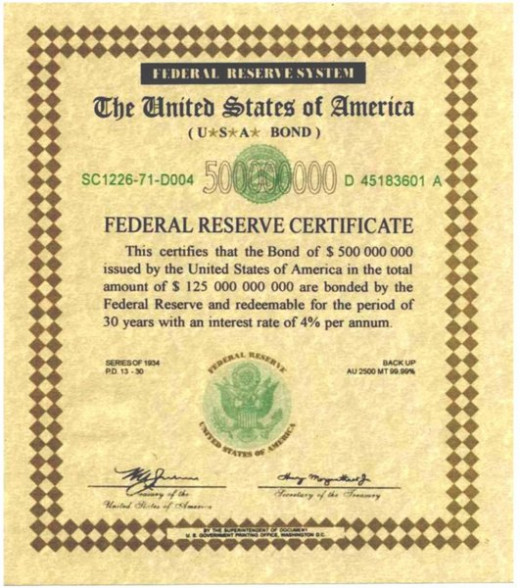The Basics For Investing In Bonds

Most people know that they should buy bonds as well as stocks in their financial portfolio. They are aware of the stock market, because it is frequently mentioned in the news, but they are not as familiar with the intricacies of bonds. Before investing in any investment vehicle, you will want to learn about it.
Here are some answers to frequently asked questions that will help provide the basics of investing in bonds.
What are bonds?
In simple terms, bonds are large loans to municipalities and other governmental organizations. There are government sanctioned reasons that bonds can be issued, generally pertaining to the public good. These laws will change from time to time, so new bonds have to meet the current laws.
Let's take an example to illustrate a set of bonds. The airport would like to build an expansion. Their lawyers check the laws and decide that it is deemed to be a public good. The financial managers of the airport want to borrow the money, and think they will be able to get enough money on the expansion to pay back the loan in thirty years.
They issue a set of bonds, say $10,000,000. When they issue the bonds, depending on the market condition, they may stagger the maturity dates, so that instead of all the bonds maturing in 30 years, some of them will mature every year. Bonds at each maturity date will have a different interest rate, with the shorter term bonds usually having a lower interest rate. They decide to pay interest semiannually to the bondholders, in June and December.
Instead of borrowing the entire ten million from one person or entity, the bond issue is broken up in smaller denominations, generally $5,000. There will be companies who can afford to buy many of these pieces, but some people may simply buy one.
Say you buy a $5,000 bond at 5% for thirty years. You can keep this bond until its maturity and earn 5% a year for the entire life of the loan. Every June and December, you receive a check in the mail for $125, and expect to receive $5,000 at the end of 30 years from the airport. However, sometime during the maturity date, you find yourself in a position where you need the principal. You can sell this bond to get the money early, but you will likely not get $5,000. The price of the bond will depend on the market conditions at the time. If the interest rates are higher than 5% at the time, your bond will be worth less than $5,000. If interest rates are lower, it will be worth more than $5,000. Interest rates will not be the only factor, however. The new bond buyer will also take into consideration the likelihood of getting their payment from the airport on the maturity date. If the airport is doing really well, he may be willing to pay a little bit extra because he feels secure with this purchase.
What is the difference between stocks and bonds?
When you own stocks, you have a piece of ownership in the company. The value of the stock depends on the value of the company. If the company does well, the value of your stock can appreciate considerably. Bonds, on the other hand, are simply loans and their value has more to do with the interest rate environment, as long as the company remains capable of paying back the loan. If the company does really well, you are limited to receiving the par value of your bond. The most you can get is your $5,000 plus the interest.
Bonds would be paid before stocks in a bankruptcy since they are loans. Stockholders only get whatever is remaining, if there is anything.
Since paying interest is a contractual obligation, bonds will regularly interest on the interest payment date. This provides a more predictable income stream. Stocks can pay dividends on certain dates, but the amounts can vary, and if they have a bad year, the company is not obligated to issue a dividend.
Bond prices tend to be less volatile than stock prices, making them an investment of choice for people who expect to need the money soon. Because they tend to be less risky than stocks, they also tend to have lower returns than stocks do.
Resources on investing in bonds from Amazon
How do bonds help diversify an investment portfolio?
Stocks and bonds are different types of investment vehicles. They function differently in different market conditions. When interest rates go up, people are spending a lot of money and the government is increasing interest rates to get them to save their money. With people buying lots of things, corporations are doing well, and stock prices are going up. But the value of the bond is going down, because there are alternative uses of the investment dollar that will offer better yields. When interest rates go down, the opposite happens. The value of the bond goes up, but the stock prices may go down. It doesn't always work this way, but the fact that both of these investment vehicles work in different ways means that if one of them goes down, the other one will not necessarily also go down.
The other difference is that you can deal with different entities when dealing with bonds than you are with stocks. With stocks, you are dealing with corporations. While corporations can also issue bonds, bonds are generally issued by municipalities and other governmental entities. This offers an additional diversification since corporations and municipalities do not always get affected by the economy in the same way.
Most financial advisers will recommend that you have both stocks and bonds in your investment portfolio. They also recommend that you increase your investment in bonds and reduce your investment in stocks as you get older. Of course, in order to properly diversify your investments, you will consider other factors in addition to stocks and bonds.

Who issues bonds?
Federal
The U.S. federal government issues treasury bills, bonds, and notes. They also offer savings bonds.
State
The state may also issue bonds for a variety of purposes. The state may allow a corporation or other company to issue bonds that will help reduce air pollution, add jobs in the state, provide economic development, and other issues that are for the common good.
Local Municipalities
A city or a county may offer bonds to build or repair an infrastructure such as a highway or sewer system, or they may simply issue general obligation bonds which allow them to use the money for any purpose. Since tax revenue is used to pay the money back to the bond owner, these types of bonds require the approval of voters.
Other Governmental Entities
- Schools
- Airport
- Convention Center
- Housing agencies
Corporations
Corporations can also issue bonds, if they meet the criteria for issuing bonds. Since they are based on the ability of the corporation to pay back the loan, they tend to be riskier than the government bonds.

Do you pay taxes on bonds?
When bonds are issued for purposes sanctioned by the government, their interest may be tax-exempt by that taxing authority. Some bonds do not require you to pay alternative minimum tax, while others do. Note that some bonds, such as corporate bonds, are taxable even at a federal level.
Even if they are tax exempt at a federal level, they might not be tax-exempt in the state or municipality. Be sure to read the offering statement and other material you received at the time of purchase to know how to deal with taxes at each level, federal, state, and municipality.
Where do you buy bonds?
Federal bonds can be purchased directly through the U.S. Treasury, but most other types of bonds are purchased through a brokerage firm. Most investment banks and brokerage firms will allow you to purchase a portfolio of different investment vehicles, including stocks and bonds.
Brokerage firms also offer pools of bonds, called bond funds, to investors. These mutual funds allow the investors to diversify their investments in a variety of different bond issues. The brokerage firm buys and sells the bonds, as people buy or sell their bond fund, and manages the portfolio. There are a variety of different bond funds which consist of different types of pools of bonds to meet the preferences and tax needs of the investors.
Special considerations in buying bonds
Is it FDIC insured?
Bonds are often compared to certificates of deposit, because the principal is fixed, and the interest is paid regularly. However, CDs are usually issued by banks and are FDIC insured. Bonds are not insured by the FDIC. However, in order to entice investors to buy bonds, the bond issuer may provide some collateral, or some kind of bond bond insurance to provide some security to the bondholder.
What are Bond calls?
Unlike a CD, some provisions of bond issues allow the bonds to be called early by the issuer. This means that the company may decide to pay off its loan early. You will stop earning interest and will be paid your principal back before the maturity date. There are several different types of bond calls, including calls for mandatory redemption, which are determined at the beginning of the issue, so you must be sure to read this section of the offering circular very carefully.
Where's my certificate?
You may see lots of pretty certificates on this page, but you are not likely to actually receive one when you buy a bond. Just like savings passbooks, certificates are a thing of the past. The actual certificate is no longer necessary to prove a record of ownership. Now, your purchase of a bond is registered on a record keeping system, and you are deemed to be the registered owner. You don't have to keep track of the certificate for 30 years, and worry about the piece of paper being lost or stolen. There is still a certificate, but there is only one for the whole bond issue, and it is generally held by a depository, normally The Depository Trust Company.
Basics of Investing in Bonds
Bonds are loans to municipalities, government agencies and corporations. With some exceptions such as default or calls for early redemption, they provide a predictable income stream and maturity date. They are a useful investment vehicle in diversifying your investment portfolio since they work differently in different market conditions than stocks do.
As with any investment vehicle, you need to be sure you really know what you are buying. be sure to ask your broker, and read all of the material that is provided to you.



![Household Investment Techniques: How To Lower Your Investment Risk I - Risk Analysis and Management [25]](https://usercontent2.hubstatic.com/4246497_f120.jpg)





